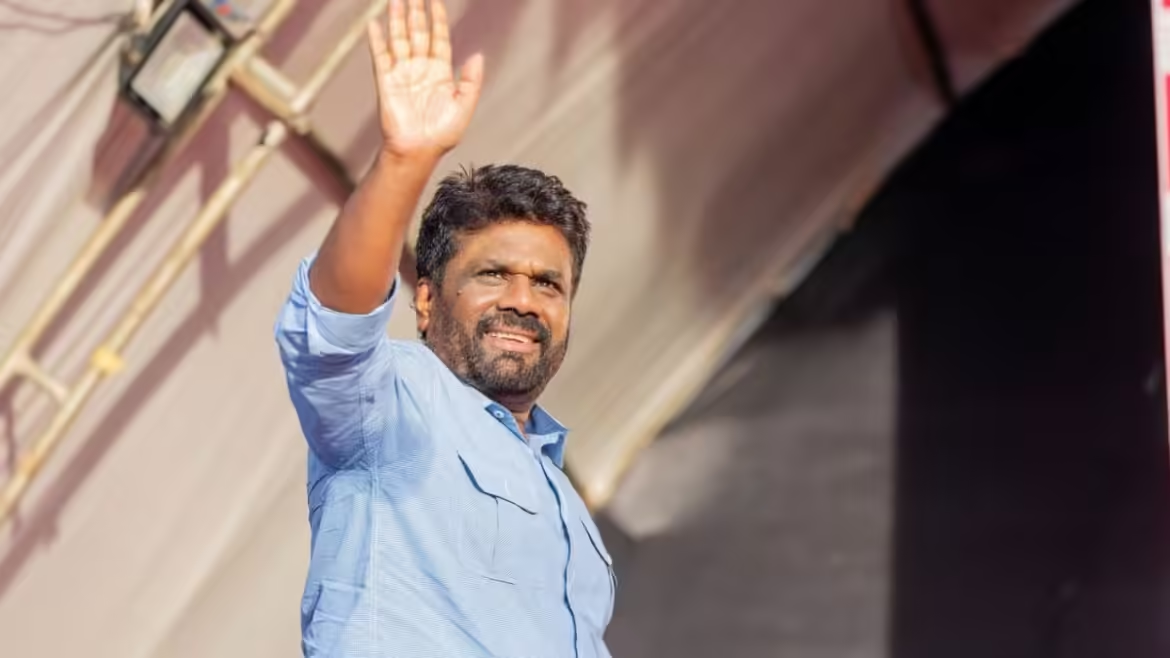Dissanayake’s National People’s Power Coalition Wins Majority in Sri Lanka’s Snap Election
Sri Lankan President Anura Kumara Dissanayake’s coalition, the National People’s Power (NPP), is on track to secure a parliamentary majority following Thursday’s snap general election, according to preliminary results from the Election Commission of Sri Lanka. Dissanayake, who was elected president in September, called for this election to solidify support for his policies, which focus on reducing poverty and guiding the nation out of an economic crisis.
Historic Gains for the NPP in Parliament
The NPP, a coalition with a Marxist-leaning platform, held only three seats in the 225-member parliament before this election. Thursday’s results show the NPP winning 52 seats, claiming nearly 62% of the vote, or about 5.4 million votes. This puts them in a strong position to achieve a parliamentary majority. Dissanayake described the election as a “critical turning point” for Sri Lanka, calling it an opportunity to secure a strong mandate for continued reforms.
Opposition Parties and Voter Turnout
The main opposition party, Samagi Jana Balawegaya, led by Sajith Premadasa, won 13 seats with roughly 19% of the vote, while the New Democratic Front, associated with former President Ranil Wickremesinghe, secured just two seats. Approximately 17 million Sri Lankans were eligible to vote, with a record number of political parties and independent groups—690 in total—contesting in 22 electoral districts across the island.
Dissanayake’s Policy Agenda for Economic Reform
Dissanayake, seen as a political outsider in a country long influenced by family-dominated political parties, champions policies aimed at poverty reduction, expanding welfare support, and tackling corruption. He hopes to implement these measures alongside economic reforms, including tax cuts and local business support. While the Sri Lankan presidency holds executive authority, Dissanayake still requires a parliamentary majority to fully implement his agenda, including his proposal to end the controversial executive presidency, which would require a two-thirds parliamentary majority.
Sri Lanka’s Economic Challenges and Road to Recovery
Sri Lanka, a nation of 22 million people, is still recovering from a severe economic crisis that led to a 2022 sovereign default and saw the economy shrink by 7.3% that year and 2.3% the following year. Although a $2.9 billion IMF bailout has helped stabilize the economy, high living costs remain a pressing issue for many citizens, particularly low-income families. With a renewed mandate, Dissanayake aims to address these economic hardships and pave the way for a more resilient future.
As Sri Lanka looks forward to economic recovery and political reform, Dissanayake’s coalition victory marks a significant shift in the country’s political landscape, with potential long-term impacts on governance and social policies.
Stay connected to know more on arcnews.online for global news like Sri Lanka’s President Dissanayake Poised for Parliamentary Majority in Key Election. For videos updates visit our YouTube. Do subscribe to Arcnews to get latest updates directly in your mail box.
Have A Great Day.


